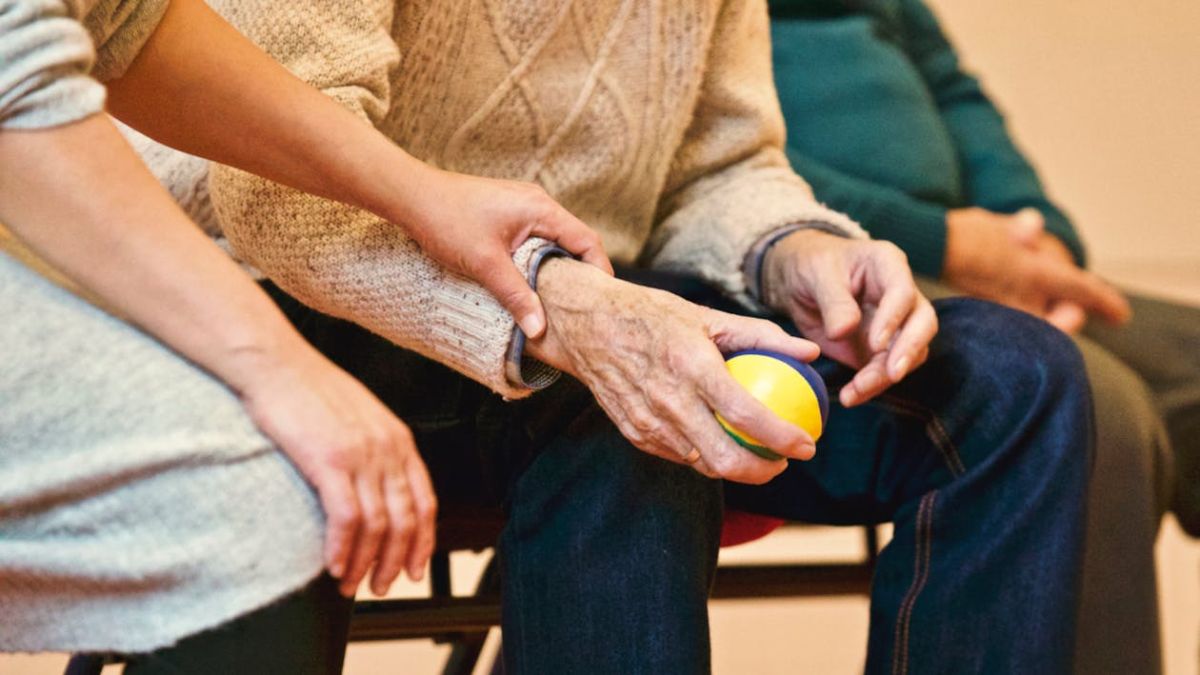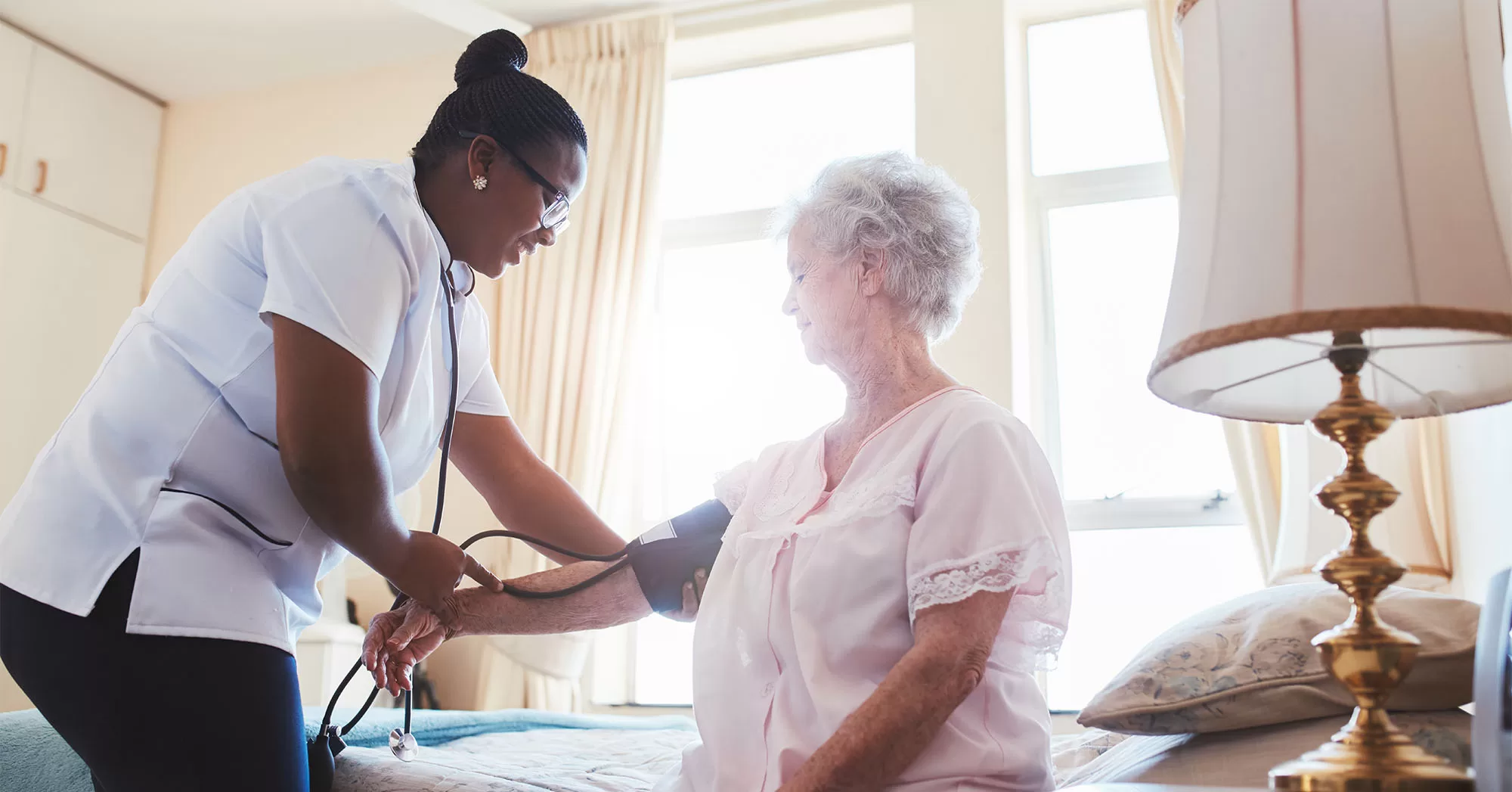Aging is when health and well-being become the proverbial elephant in the room. As a professional caregiver or even as a family member taking care of your older relative, you need to become familiar with the common changes that happen to most seniors. It is important to know the signs of disease or something else that requires medical attention. Understanding the normal aging process will help you manage these worries.
Here are some common areas you might see changes in an older adult and when to be more concerned.
Incontinence
Contrary to popular opinion, incontinence is not a normal part of aging but is usually caused by conditions like urinary tract infections (UTIs), constipation, and medication side effects.
If your client has incontinence issues that are not mentioned in their plan of care, it’s time to escalate the issue to the supervising nurse who will take steps to talk with your client’s physician to find the cause of the problem so it can be improved.
Bladder muscles get weaker with age so it is normal for older people to urinate more frequently because older bladders can’t hold as much urine. It is also easier for leaks to happen.
For men, enlarged prostate (BPH) is a common condition. The prostate grows and squeezes the urethra, making it difficult to urinate.
Fall risk
The risk of falling does increase with age because of changes in vision, hearing, muscles, and balance. Having medical conditions like diabetes or heart disease also increases the risk of falling.
Common side effects of many medicines are dizziness, weakness, or loss of balance which should be taken into consideration when providing care.
Regular exercise, a healthy diet, medication management, and getting regular vision tests are the best ways to prevent falls.
Changes in sleep patterns
Changes in sleep and circadian rhythm occur as we age. Seniors will probably sleep less at night and probably won’t sleep as deeply as they did when they were younger. And it’s more likely that they’ll wake up during the night and/or wake up earlier in the morning.
Common reasons for poor sleep include discomfort from medical conditions; medication side effects, needing to urinate more frequently; irregular sleep/wake schedule; daytime napping, and too much time spent in bed.
Skin conditions
Older adult skin is thin and fragile. Skin infections or pressure sores can develop rapidly. The best way to prevent skin breakdown is to stay clean, dry, and moisturized.
Older skin is also prone to several diseases and conditions such as fungal skin infections, athlete’s foot, nail fungus, rosacea, eczema, dandruff, and severely dry and itchy skin.
Dermatological (or skin) disorders are extremely common in older individuals, and this should be taken into account by physicians. A whole-body clinical skin examination may reveal hidden skin diseases and can ensure timely diagnosis and appropriate treatment.
Memory and thinking
Although the risks of Alzheimer’s increase with age, dementia is not a normal part of aging and requires immediate medical attention.
The symptoms of dementia are more acute, and more persistent and may impact an older adult’s ability to accomplish basic daily tasks.
What is normal is memory changes like being slower at remembering names and details and having less recall of short-term memories.
Hearing and Sight
For both eyes and ears, getting older means that these senses need more input before the nerves respond. That means that it has to be brighter before the eyes can “see” the light. Or someone has to speak louder before their ears can “hear” the sound.
Around age 60, people might get cataracts, glaucoma, diabetic retinopathy, or macular degeneration. These eye problems are common in older adults. Regular eye exams with dilation can catch these conditions early. Night vision also gets worse, and glare becomes a bigger problem. These changes in vision can affect seniors’ ability to drive safely, especially after dusk.
With age, hearing high-pitched sounds is more difficult. This also makes words harder to understand because consonants (like k, t, s, p) are actually high-pitched. Vowels are lower-pitched and easier to hear, but the consonants help people identify words.
Bones and joints
Our bones and joints take a beating over the years. After 65 or more years of wear and tear, it’s natural for them to weaken, become chronically inflamed, or have cartilage get worn away. The most common age-related conditions are osteoporosis, arthritis, and rheumatoid arthritis.
The spine also becomes compressed with age because the cushions between vertebrae get thinner. This makes people seem to shrink with age. Ligaments and tendons that attach joints together lose elasticity, making joints stiff and tight. That’s why older adults are less flexible.
Digestion and metabolism
Digestion doesn’t usually change much because of aging. Food might move a little more slowly through the digestive system. This might cause some people to become constipated. But older people are more likely to be lactose intolerant because of changes in enzymes.
As we all know too well, metabolism slows down with age and with muscle loss. That means seniors have more body fat and less muscle. That’s why exercise is important at every age. It helps maintain or slow the decrease of muscle.
The liver doesn’t work as efficiently, which means that drugs can stick around longer in the body and have longer-lasting effects.
Knowing the difference between what is normal for healthy aging and what is not will help you tremendously in safeguarding your client’s health and wellbeing. Aging can be a wondrous time in a person’s life if they are healthy and cared for with compassion and skill and that is where our True Care Home Health Aides come in. Whether you are searching for care or think you have what it takes to be a True Care HHA, visit our intake page to find out more.






